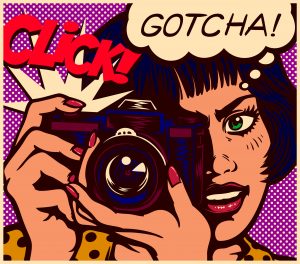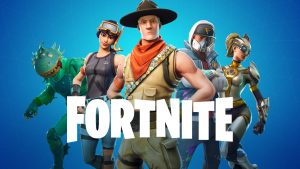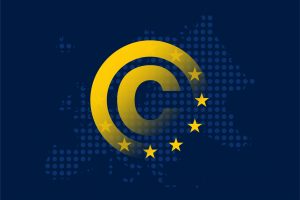 Your company wants to use a picture taken outside of your office at an event you are hosting or sponsoring. Perhaps the image shows someone wearing your clothing or other product or using something showing your brand. Possibly you participated in a parade and want some images showing your company’s float or views from the float along the parade route. Maybe the image shows the outside of your building or the immediately surrounding area. You may have hired a photographer to take the pictures, they may have been taken by an employee, or someone may have found them on a third-party website or social media posts. The pictures may depict people who were on the street or present at the event, and they may include images of one or more buildings or local landmarks.
Your company wants to use a picture taken outside of your office at an event you are hosting or sponsoring. Perhaps the image shows someone wearing your clothing or other product or using something showing your brand. Possibly you participated in a parade and want some images showing your company’s float or views from the float along the parade route. Maybe the image shows the outside of your building or the immediately surrounding area. You may have hired a photographer to take the pictures, they may have been taken by an employee, or someone may have found them on a third-party website or social media posts. The pictures may depict people who were on the street or present at the event, and they may include images of one or more buildings or local landmarks.
Articles Posted in Copyright
Skin in the Game: A Second Take on Copyright and Tattoos in Video Games
 You’re in the midst of doomscrolling, when you decide to take a mental health break and post a photo to your socials from a happier (pre-pandemic) time. As you search through your photos, you find a great one of yourself that a friend-of-a-friend took. You’re about to post the photo when you remember a post that you read on this very blog about the potential copyright consequences of using a photo taken by someone else. You aren’t a celebrity—yet—but you decide that it’s best to use a photo that you took yourself. A couple of minutes later you post a throwback selfie in which you are smiling as you proudly show off your very first tattoo. It took you days to decide on the design and hours for the tattoo artist to bring to life. Even today you still get compliments on it, and some people have even recognized you solely based on the fact that you have a very big and very prominent tattoo of Pegasus riding a dragon while eating rainbow sherbet and shooting lasers from a cat. Your post starts racking up likes from your friends (and followers)—when all of the sudden you get a DM from the tattoo artist informing you that she never authorized you to display her copyrighted work on social media and demanding that you take the photo down. Unfortunately, now you’ll be spending the rest of your evening trying to figure out how any rights your tattoo artist has in works permanently inked upon your body may impact your own rights to use (and license) your own likeness.
You’re in the midst of doomscrolling, when you decide to take a mental health break and post a photo to your socials from a happier (pre-pandemic) time. As you search through your photos, you find a great one of yourself that a friend-of-a-friend took. You’re about to post the photo when you remember a post that you read on this very blog about the potential copyright consequences of using a photo taken by someone else. You aren’t a celebrity—yet—but you decide that it’s best to use a photo that you took yourself. A couple of minutes later you post a throwback selfie in which you are smiling as you proudly show off your very first tattoo. It took you days to decide on the design and hours for the tattoo artist to bring to life. Even today you still get compliments on it, and some people have even recognized you solely based on the fact that you have a very big and very prominent tattoo of Pegasus riding a dragon while eating rainbow sherbet and shooting lasers from a cat. Your post starts racking up likes from your friends (and followers)—when all of the sudden you get a DM from the tattoo artist informing you that she never authorized you to display her copyrighted work on social media and demanding that you take the photo down. Unfortunately, now you’ll be spending the rest of your evening trying to figure out how any rights your tattoo artist has in works permanently inked upon your body may impact your own rights to use (and license) your own likeness.
Social Media Posting, Copyright Infringement and the Rights Balancing Act
 In a recent social gathering, your friends took a number of photos and circulated it to the group. You see that one shot by a friend is a particularly great photo of you. You repost to your social media account to share with the world. It would generally be safe to assume that nothing will come of this, much less a copyright infringement lawsuit against you by your friend who took the shot. For celebrities, this is not always the case. In the past few years, there have been many lawsuits filed for copyright infringement by photographers and paparazzi against celebrities that reposted photos of themselves that they took off the internet.
In a recent social gathering, your friends took a number of photos and circulated it to the group. You see that one shot by a friend is a particularly great photo of you. You repost to your social media account to share with the world. It would generally be safe to assume that nothing will come of this, much less a copyright infringement lawsuit against you by your friend who took the shot. For celebrities, this is not always the case. In the past few years, there have been many lawsuits filed for copyright infringement by photographers and paparazzi against celebrities that reposted photos of themselves that they took off the internet.
Recent Appellate Decisions Clarify the “NonCommercial” Requirement of the Creative Commons ShareAlike License
 Anyone who has spent time scouring the internet for free-to-use content has likely come across pictures, written materials and music permissively licensed under one or more of the Creative Commons licenses. These licenses tend to offer the public a broad range of options when using copyrighted material that is released under the Creative Commons scheme. However, like all licenses, the Creative Commons licenses can contain conditions and requirements that the licensee must adhere to in order to avoid liability. Two recent appellate court decisions shed light on one important condition in the Creative Commons NonCommercial ShareAlike license.
Anyone who has spent time scouring the internet for free-to-use content has likely come across pictures, written materials and music permissively licensed under one or more of the Creative Commons licenses. These licenses tend to offer the public a broad range of options when using copyrighted material that is released under the Creative Commons scheme. However, like all licenses, the Creative Commons licenses can contain conditions and requirements that the licensee must adhere to in order to avoid liability. Two recent appellate court decisions shed light on one important condition in the Creative Commons NonCommercial ShareAlike license.
Song Sound-Alike Suits: Recent Music Copyright Cases Strike a Different Note
 Copyright infringement lawsuits based on sound-alike songs are nothing new. Shortly after releasing the Billboard No. 1 single “My Sweet Lord” in 1970, George Harrison was sued for copyright infringement by the publisher of “He’s so Fine,” the 1963 hit released by the Chiffons. In the early ’90s, Vanilla Ice settled a copyright infringement suit for using the famous bass line from Queen and David Bowie’s “Under Pressure” in his single, “Ice Ice Baby,” without permission.
Copyright infringement lawsuits based on sound-alike songs are nothing new. Shortly after releasing the Billboard No. 1 single “My Sweet Lord” in 1970, George Harrison was sued for copyright infringement by the publisher of “He’s so Fine,” the 1963 hit released by the Chiffons. In the early ’90s, Vanilla Ice settled a copyright infringement suit for using the famous bass line from Queen and David Bowie’s “Under Pressure” in his single, “Ice Ice Baby,” without permission.
The Rise of the Copyright Bots
 The copyright bots have been unleashed, they have a mind of their own, and there is little that can be done to stop them.
The copyright bots have been unleashed, they have a mind of their own, and there is little that can be done to stop them.
Copyright bots, otherwise known as content recognition software, are automated programs that can analyze audio and video clips uploaded to a platform, then compare those Clips against a database of content provided by copyright owners to identify matches. The copyright owners can then review the identified matches to assess if they are actually copies, if they are authorized or not, and if any action is warranted. Some programs utilizing copyright bots offer their own enforcement procedures to customers, while other programs are partnered with law firms that will act on behalf of the copyright owners to enforce their rights, including sending demand letters and filing lawsuits.
What Will Be the Endgame for Copyright in AI-Generated Works?
(Note, this post has spoilers for Avengers: Endgame.)
 Perhaps one of the most mesmerizing scenes in Avengers: Endgame is where all the MCU superheroes (including those on Titan) come through Dr. Strange’s portals to enter the battle against Thanos. In Avengers: Infinity War, Dr. Strange didn’t use these portals to send Iron Man and the others on Titan back to Earth before everyone got dusted, but that alternative storyline certainly may have been one that fans would have enjoyed. Understandably, one enormous limiting factor to alternative storylines is cost—especially when $600-800 million was spent to create the two movies as they are. Future advances in artificial intelligence technologies may change that. Indeed, a number of large tech companies are already interested in creating interactive content to personalize storytelling (e.g., Black Mirror’s “Bandersnatch” episode), and recent developments in machine learning algorithms (including those fueling the creation of photorealistic images) may bring us closer to that reality sooner than later. If so, under what circumstances will companies own and get to collect on the copyright?
Perhaps one of the most mesmerizing scenes in Avengers: Endgame is where all the MCU superheroes (including those on Titan) come through Dr. Strange’s portals to enter the battle against Thanos. In Avengers: Infinity War, Dr. Strange didn’t use these portals to send Iron Man and the others on Titan back to Earth before everyone got dusted, but that alternative storyline certainly may have been one that fans would have enjoyed. Understandably, one enormous limiting factor to alternative storylines is cost—especially when $600-800 million was spent to create the two movies as they are. Future advances in artificial intelligence technologies may change that. Indeed, a number of large tech companies are already interested in creating interactive content to personalize storytelling (e.g., Black Mirror’s “Bandersnatch” episode), and recent developments in machine learning algorithms (including those fueling the creation of photorealistic images) may bring us closer to that reality sooner than later. If so, under what circumstances will companies own and get to collect on the copyright?
Say Hello to the EU Copyright Directive
Back in September, we looked at the concerns and implications surrounding a proposed new copyright law being considered by EU legislators. Yesterday, perhaps faster than many expected, the European Parliament passed the new law. Many tech companies, digital rights activists and academic researchers found common ground in opposing the legislation, which they claim will stifle information sharing and enable censorship. Supporters of the law see it as a means to protect creative content. As written, the legislation is not quite as restrictive in all areas as initially feared—memes and gifs are “safe,” as are uploads to noncommercial and open-source sites—but nonetheless, now that it has been passed, and after inevitable legal challenges lead to further adjustments in the language, we’ll see who was right.
Creators Take Care: SCOTUS Adjusts the Timing of the Copyright Registration Tango
 Fortnite is the most popular video game in the world. So popular that it was last year’s highest earning video game, grossing more than $2.4 billion in 2018 alone. So popular, in fact, that its fans successfully convinced Sony to reverse its longstanding policy against cross-platform gaming, thus allowing PlayStation Fortniters to play with their PC, mobile and other console-owning friends. Fortnite is also free.
Fortnite is the most popular video game in the world. So popular that it was last year’s highest earning video game, grossing more than $2.4 billion in 2018 alone. So popular, in fact, that its fans successfully convinced Sony to reverse its longstanding policy against cross-platform gaming, thus allowing PlayStation Fortniters to play with their PC, mobile and other console-owning friends. Fortnite is also free.
Of Memes and Monetizing: Could the EU Directive on Copyright Change the Way We Speak Internet?
 Do you like getting your news online, sharing videos or tweeting memes? A little piece of legislation known as The European Union Directive on Copyright in the Digital Single Market may signal the end of some of the internet’s simple pleasures. On September 13, the European Parliament approved new legislation that would overhaul the region’s approach to copyright law. As with the EU’s privacy regulations, the legislation could have an impact far beyond Europe, redrawing the lines of liability that exist between poster, publisher and platforms. Not surprisingly, technology companies and publishers like Google, Amazon, and Wikipedia strongly opposed the legislative changes.
Do you like getting your news online, sharing videos or tweeting memes? A little piece of legislation known as The European Union Directive on Copyright in the Digital Single Market may signal the end of some of the internet’s simple pleasures. On September 13, the European Parliament approved new legislation that would overhaul the region’s approach to copyright law. As with the EU’s privacy regulations, the legislation could have an impact far beyond Europe, redrawing the lines of liability that exist between poster, publisher and platforms. Not surprisingly, technology companies and publishers like Google, Amazon, and Wikipedia strongly opposed the legislative changes.
 Internet & Social Media Law Blog
Internet & Social Media Law Blog


